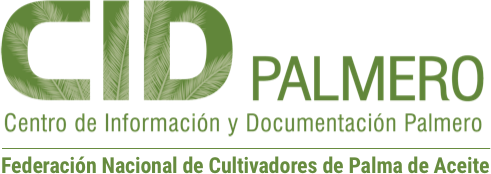| dc.creator | Miranda, Héctor | |
| dc.creator | Schuchardt, Frank | |
| dc.creator | Wulfert, Klaus | |
| dc.creator | Darnoko Tjahjono Herawan, | |
| dc.date | 2007-01-01 | |
| dc.date.accessioned | 2020-07-25T11:19:31Z | |
| dc.date.available | 2020-07-25T11:19:31Z | |
| dc.identifier | https://publicaciones.fedepalma.org/index.php/palmas/article/view/1307 | |
| dc.identifier.uri | http://repositorio.fedepalma.org/handle/123456789/139934 | |
| dc.description | Conventional palm oil mills pollute the environment by the greenhouse gas methane from the waste water (Palm Oil Mill Effluent, Pome) ponds and by uncontrolled nutrient losses from the waste (Empty Fruit Bunch, EFB) and the Pome. In a new process some basic criteria for a sustainable oil palm production can be realized. The Pome will be treated in an anaerobic fixed bed reactor to produce biogas, while the EFB will be composted. After the fermentation process all the Pome will be added to the EFB during the rotting process. On the basis of a 30 t mill with an annual input of 160,000 t fresh fruit bunch (FFB) the energy equivalent of the biogas is 1.46 Mio. Liter Diesel fuel, representing a CO2-equivalent of about 24,075 t. The monetary value of the unused nutrients from the Pome, the biogas and the CO2-certificates (by Cleaner Development Management, CDM) is >1.6 Mio. Euro in one year. | en-US |
| dc.description | Las plantas de beneficio convencionales contaminan el ambiente con gases de invernadero, como el metano, que se produce en las lagunas de efluentes (efluente de la planta de beneficio o Pome, por su sigla en inglés) y en las pérdidas incontroladas de nutrientes de residuos sólidos (racimos de fruta vacíos RV o tusas, EFB por su sigla en inglés) y efluentes. En el nuevo proceso se aplican criterios básicos para la producción sostenible de aceite de palma. Los efluentes se tratan en un redactor anaeróbico para producir biogás, mientras que con los RV se hace compostaje. Después del proceso de fermentación los efluentes se adicionan a los RV durante el proceso de descomposición. Con base en una planta de beneficio de 30 t con una producción anual de 160.000 t racimos de fruta fresca (RFF) la energía equivalente del biogás es 1.46 M. de litros de diesel, que representan un CO2-equivalente de aproximadamente 24.075 t. El valor monetario de los nutrientes no utilizados de los efluentes, el biogás y los certificados de CO2 (mecanismos de desarrollo limpio, MDL) es1.6 M. EUR por año. | es-ES |
| dc.format | application/pdf | |
| dc.language | spa | |
| dc.publisher | Fedepalma | es-ES |
| dc.relation | https://publicaciones.fedepalma.org/index.php/palmas/article/view/1307/1307 | |
| dc.rights | Derechos de autor 2017 Revista Palmas | es-ES |
| dc.rights | https://creativecommons.org/licenses/by-nc-nd/4.0 | es-ES |
| dc.source | Revista Palmas; Vol. 28 Núm. especial, (2007); 191-198 | es-ES |
| dc.source | 0121-2923 | |
| dc.subject | aceite de palma | es-ES |
| dc.subject | plantas de beneficio | es-ES |
| dc.subject | aguas residuales | es-ES |
| dc.subject | raquis | es-ES |
| dc.subject | fermentación | es-ES |
| dc.subject | biogás | es-ES |
| dc.subject | compost | es-ES |
| dc.subject | emisión de gases | es-ES |
| dc.subject | efecto invernadero | es-ES |
| dc.subject | desarrollo sostenible | es-ES |
| dc.subject | Mecanismo de desarrollo limpio | es-ES |
| dc.subject | MDL | es-ES |
| dc.title | Sustainable waste water (pome) and waste (EFB) management in palm oil mills by a new process | en-US |
| dc.title | Manejo sostenible de efluentes y tusas : en plantas de beneficio de palma de aceite mediante un nuevo proceso | es-ES |
| dc.type | info:eu-repo/semantics/article | |
| dc.type | info:eu-repo/semantics/publishedVersion | |


